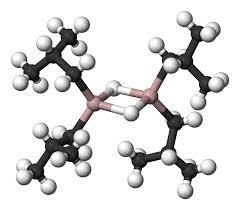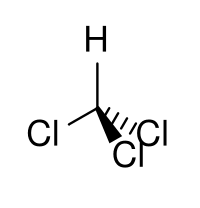

An organochloride, organochlorine compound, chlorocarbon, or chlorinated hydrocarbon (source Wikipedia) is an organic compound containing at least one covalently bonded atom of chlorine that has an effect on the chemical behavior of the molecule. The chloroalkane class (alkanes with one or more hydrogens substituted by chlorine) provides common examples. The wide structural variety and divergent chemical properties of organochlorides lead to a broad range of names and applications. Organochlorides are very useful compounds in many applications, but some are of profound environmental concern.
The largest application of organochlorine chemistry is the production of vinyl chloride, almost all of which was converted into polyvinylchloride (PVC).
The most important is dichloromethane, which is mainly used as a solvent. Chloromethane is a precursor to chlorosilanes and silicones. Historically significant, but smaller in scale is chloroform, mainly a precursor to chlorodifluoromethane (CHClF2) and tetrafluoroethene which is used in the manufacture of Teflon.
This family of chemical compounds do not corrode any of our grades of graphite.
The reliability issue may coming from the mix with other acids and reactant which can corrode phenolic resin impregnated graphite.
Some of these compounds can have as well a swelling effect on phenolic resin which will create an inner stress with early break of equipment.
GT solve this problem by replacing phenolic resin with PTFE resin, our grade GT FLON, which is not sensitive to any solvent swelling effect.
We can proceed to corrosion test or provide coupon for test on request here.
Equipment frequently used
GT DISC
GT BLOC
GT TUBE
GT CUBIC
GT PLATE
GT TOWER
Materials frequently used
Get in touch here with us to know more.
